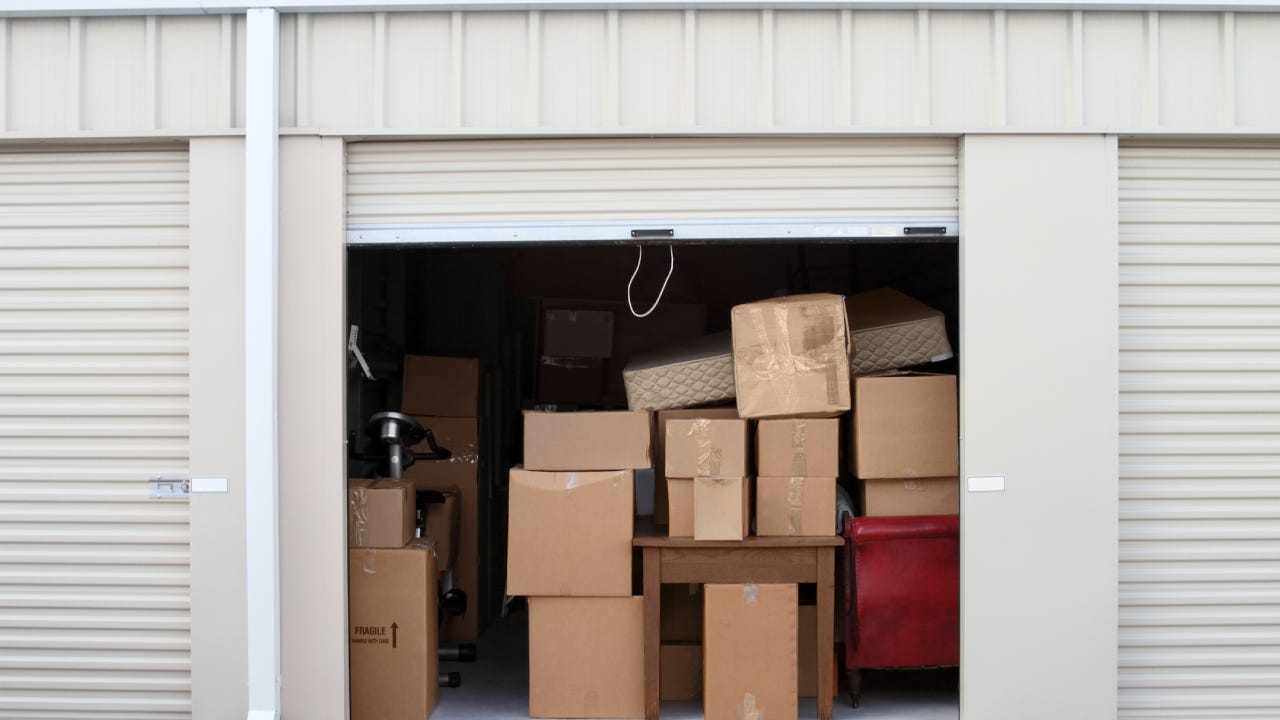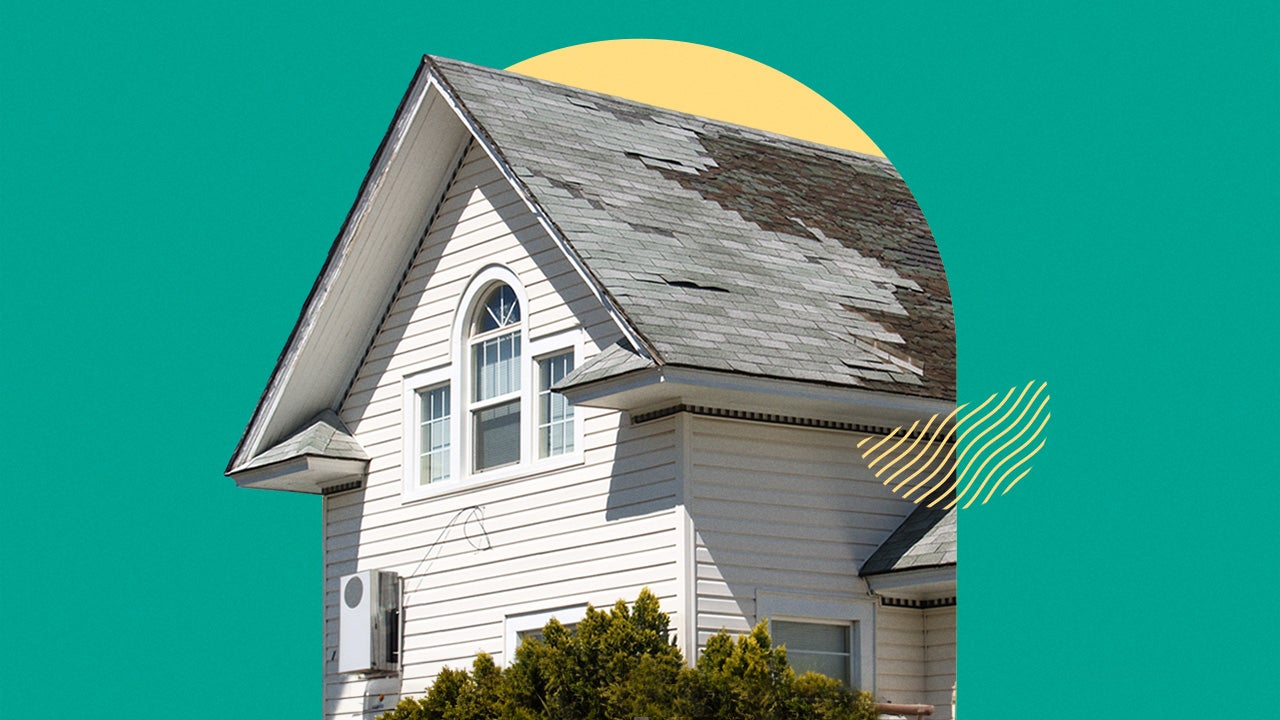What is storage unit insurance?

Personal property insurance is one of the pillars of a home or renters insurance policy — but is your personal property stored elsewhere covered? While home or renters insurance may extend to items in storage, there are exceptions. That said, it may be beneficial to purchase a separate storage unit insurance policy for a greater level of financial protection. Whether you’re looking to offload some belongings ahead of a move or just trying to declutter, Bankrate has the answers to your questions about storage insurance.
How does storage unit insurance work?
Most self-storage facilities require customers to insure stored items. If you inquire about renting a storage unit and do not have adequate insurance, the storage facility may offer to sell you a policy of their own or direct you to an affiliated third-party insurer. Before agreeing to anything, you may want to compare the storage facility’s policy terms and rates to other insurance companies’ storage unit insurance offerings and also review what your home or renters insurance policy already covers for offsite storage.
Some storage unit policies offer reimbursement based on the square footage of your unit in case of a covered event. The reimbursement is usually only the actual cash value of the damaged items and not the replacement cost value. As with all insurance coverage, your reimbursement likely depends on whether or not the loss or damage is covered or excluded by the policy.
What’s covered by storage unit insurance
If you’re not sure how to read your insurance policy, ask your agent to go over it with you. But you can generally expect storage unit insurance to cover damage from the following perils:
- Theft
- Fire
- Wind
- Hurricane
- Tornado
- Water damage
- Hail
- Lightning
- Smoke
What’s not covered by storage unit insurance
Damage related to the perils listed below will not typically be covered:
- Flooding
- Mold and mildew
- Vermin
- Earthquake
- War
Does homeowners insurance cover items in storage?
Personal property is a broad term that indicates possessions stored inside your house and elsewhere. A standard home insurance policy reimburses you for damaged or stolen items up to the coverage limit. A renters insurance policy will also include personal property insurance to provide financial protection if your items are damaged by a named peril.
When you have possessions stored off-premises, your home or renters insurance policy may extend to those items. This is known as off-premises coverage. Off-premises coverage typically has much lower limits than standard personal property coverage. In most cases, off-premises coverage is around 10 percent of your total personal property coverage limit.
For instance, say that your home insurance policy includes up to $70,000 worth of personal property coverage. For items in storage, your policy could cover up to $7,000.
If you need more coverage than what is included in your off-premises coverage, you might consider raising your total personal property coverage limit on your home or renters insurance policy. But keep in mind that doing so will likely result in a higher premium. It’s best to determine if the separate policy will cost less than adding premium to your existing home or renters policy.
If you plan to store high-value items like family heirlooms, antiques, art or jewelry, you may need to purchase additional scheduled property coverage. This rider (or endorsement) is an optional add-on to a home or renters insurance policy that increases the limits on expensive items not included under standard personal property. The additional coverage may not require a deductible, but your insurer will typically have you get each listed item professionally appraised before applying for the endorsement.
How to buy storage unit insurance
Depending on where you choose to store your items, you may be able to buy storage unit insurance directly through the storage facility or through an affiliated third-party insurer. If you do, the cost of the premium will likely be included in your storage contract.
Alternatively, several national and regional insurance companies offer storage insurance. Experts recommend speaking with an insurance professional to find the coverage you need at a price that suits your budget.
Note that your homeowners policy will typically provide greater coverage than a policy you obtain from the storage facility. Raising the limit of your dwelling coverage also increases the limit of your personal property coverage, and for high-value items you can purchase scheduled personal property coverage in the form of an endorsement.
How much does storage unit insurance cost?
What you pay for storage unit insurance depends on where you purchase it and what your coverage limits are. You can typically expect to pay more for your premium if you opt for a policy with higher coverage limits or more named perils. In some instances, it may be cheaper to purchase a separate storage unit insurance policy than it would be to increase your home or renters personal property coverage limit.
Other ways to protect items in storage
Even the most secure storage facility is susceptible to dangers that can damage your possessions. Insurance typically helps reimburse your losses, but some things are irreplaceable. Being proactive about protecting your belongings could make all the difference.
Here are a few steps to further safeguard items in storage:
- Choosing the right facility: Self-storage facilities are plentiful across the U.S., but not all of them have high standards for protecting their customers’ possessions. Before you use a storage unit, confirm whether the paperwork you sign leaves the facility blameless in the event of loss or damage of stored items. Research the background and history of the company, as well as customer ratings, reviews and complaints.
- Theft protection: It is important to know if the facility has experienced break-ins or theft and what measures are in place to prevent such occurrences. Are there 24/7 surveillance cameras? What is required to gain entry to the facility? What kind of locks are used on the individual storage units? Are there other forms of security for additional protection?
- Water and moisture protection: Your belongings are more vulnerable to flooding if they are in a street-level storage unit, and high-humidity environments can lead to mold growth. Wrapping and/or storing belongings in plastic may help prevent moisture-related issues. Vapor barriers, desiccant packs and climate-controlled storage units might also minimize damage.
- Keep your unit clean: Take the time to periodically dust, sweep and maintain your unit to deter pests. You might even place pest control products or strongly scented items, like lavender or cedar chips, around the unit to discourage bugs from settling in.
- Fire protection: Every self-storage facility should have fire protection systems and restrictions on storing flammable and combustible items. When looking for a storage facility, this should be one of your key considerations.
- Keeping access codes secret: Do not share the access code to your individual storage unit with anyone you don’t trust. Instead of putting it down in writing, save it on your phone with password protection.
- Keeping an inventory: It’s wise to have video or photographic evidence of the items stored in your unit. This makes it hard for storage facilities to deny blame in case of stolen or missing items and will be beneficial if you need to file an insurance claim.
- Check on your unit frequently: Taking a few moments to check in on your unit occasionally might save you time and effort later, especially if you catch issues before they become large problems. For instance, if you find a rodent’s nest, you can put proper pest control precautions in place before they damage your belongings.
Placing your possessions in a storage facility is never completely risk-free, but life events may leave you with no other option. Therefore, if you have irreplaceable possessions, it is wise to store them where they are least susceptible to fire, theft or weather damage.
Frequently asked questions
Why we ask for feedback Your feedback helps us improve our content and services. It takes less than a minute to complete.
Your responses are anonymous and will only be used for improving our website.
You may also like


Renters insurance: What it is and how it works

What does homeowners insurance cover?

What does renters insurance cover?



